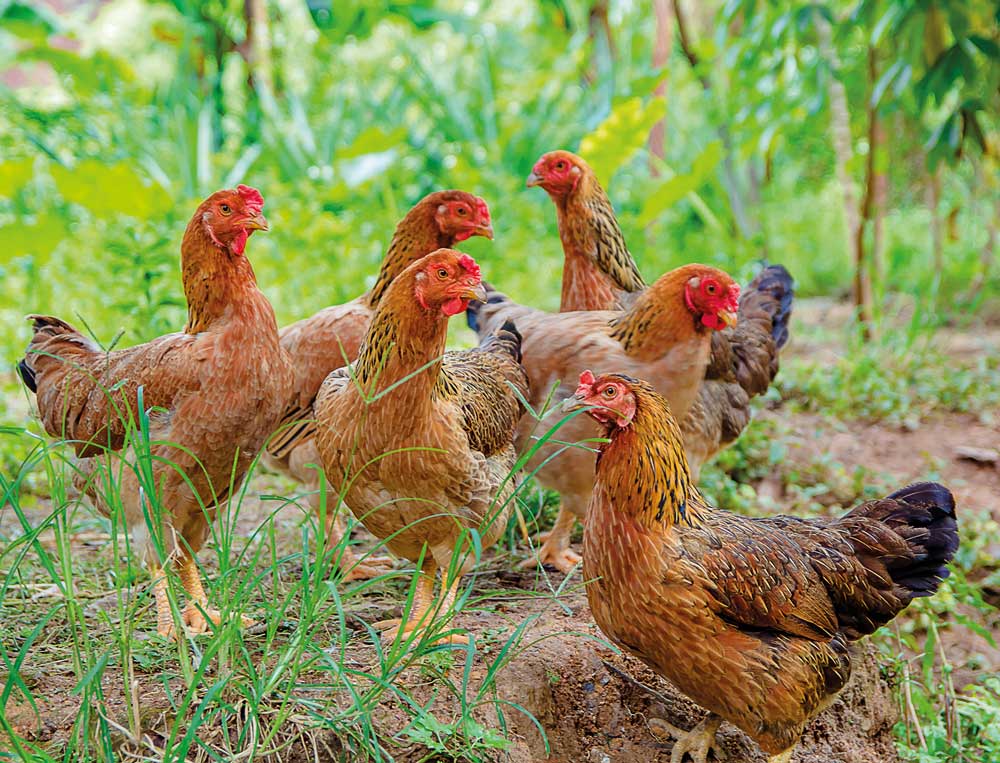Feed ingredient scandal in Poland sees four arrested
Published on : 10 Nov 2022

Polish chickens and ducks had been given feed containing oils meant for use in the production of greases, lubricants and biofuels
A Polish animal feed scam involving the substitution of oils within animal feed ingredients, has led to four people being arrested in the town of Piotra Potworowskiego on October 4th.Polish chickens and ducks had been given feed containing oils meant for use in the production of greases, lubricants and biofuels- so-called ‘technical fats’. The suspect feed was unknowingly used by well-known companies from the meat industry. Married couple, named only as Maciej and Monika J. due to Polish privacy law, who run the Polish branch of the German company Berg + Schmidt, were arrested by officers of the Central Police Investigation Bureau (CPIB) recently. The CPIB issued a statement that read “The findings of the proceedings show that the company with foreign capital operating in Poland, imported from abroad and then introduced to the market, fatty acids that should not be used in the production of feed”Berg + Schmidt are one of the leading European companies specialising in the production and distribution of feed oils and fats and with 50 years in the industry behind them, they consider themselves to be lipid specialists.Their polish subsidiary sells edible fats to feed producers in Poland. The addition of oils into feed helps with weigh gain, improves nutrient absorption and in laying hens, increases the number of eggs laid. In this instance, they had substituted the animal grade oils with technical fats, used, amongst other things, for the production of fuel. This was done as a cost cutting exercise, importing fuel grade oils from, amongst others, Ukraine, Russia, Romania, and Malaysia.Jury is out as to whether the oil substituted is actually harmful. Concerned that the technical fats might contain harmful pesticides and other contaminants, have not been substantiated. A biotechnologist working within the Polish food industry, who wished to remain anonymous, feels that the final treatment process for food production is likely to remove any such harmful substances and the risk to human health therefore remains low.The couple and two of their employees have been charged with fraud and whilst the couple have pleaded guilty, their two employees’, a manager and laboratory technician, have denied knowledge of their employers’ actions and pleaded not guilty. The couple stated that in their defence, technical fats are only marginally cheaper than food fats and do not contain harmful substances. However, it was also noted that their aim was to help the company be competitive in the market and not wait for veterinary checks at the borders.In a statement on October 4th, that firm’s German owner, Stern-Wywiol Gruppe, said it was “shocked” by the reports and does “not tolerate such activities”.The Polish Press Agency (PAP) reports that the company has pledged to cooperate with investigators and said it has suspended the operation of Berg+Schmidt until further notice. The company revenue from the sale of fats in 2020, was around PLN 90 million, but according to investigators, a large proportion of this figure comes from the use of counterfeit oils. It is a potentially large-scale fraud, amounting to over PLN 170 million, with suggestions of it having been going on since 2017, although the current allegations only apply to the period from January 2020. The investigations, which began in early 2022, are still ongoing. Reassurance from the governmentPoland is the EU’s biggest producer, supplier, accounting for 19% of the EU’s poultry production (Source:Eurostat) The Polish agriculture minister, Henryk Kowalczyk, assured that there should be no fears about the safety of Polish poultry. “The veterinary service has systematically checked the quality of feed” and “out of more than 300 samples per year that are taken, no trace of dangerous substances has been detected”, he said.That said, following the recent revelations, additional inspections will be carried out of both poultry meat and feeds, he added.